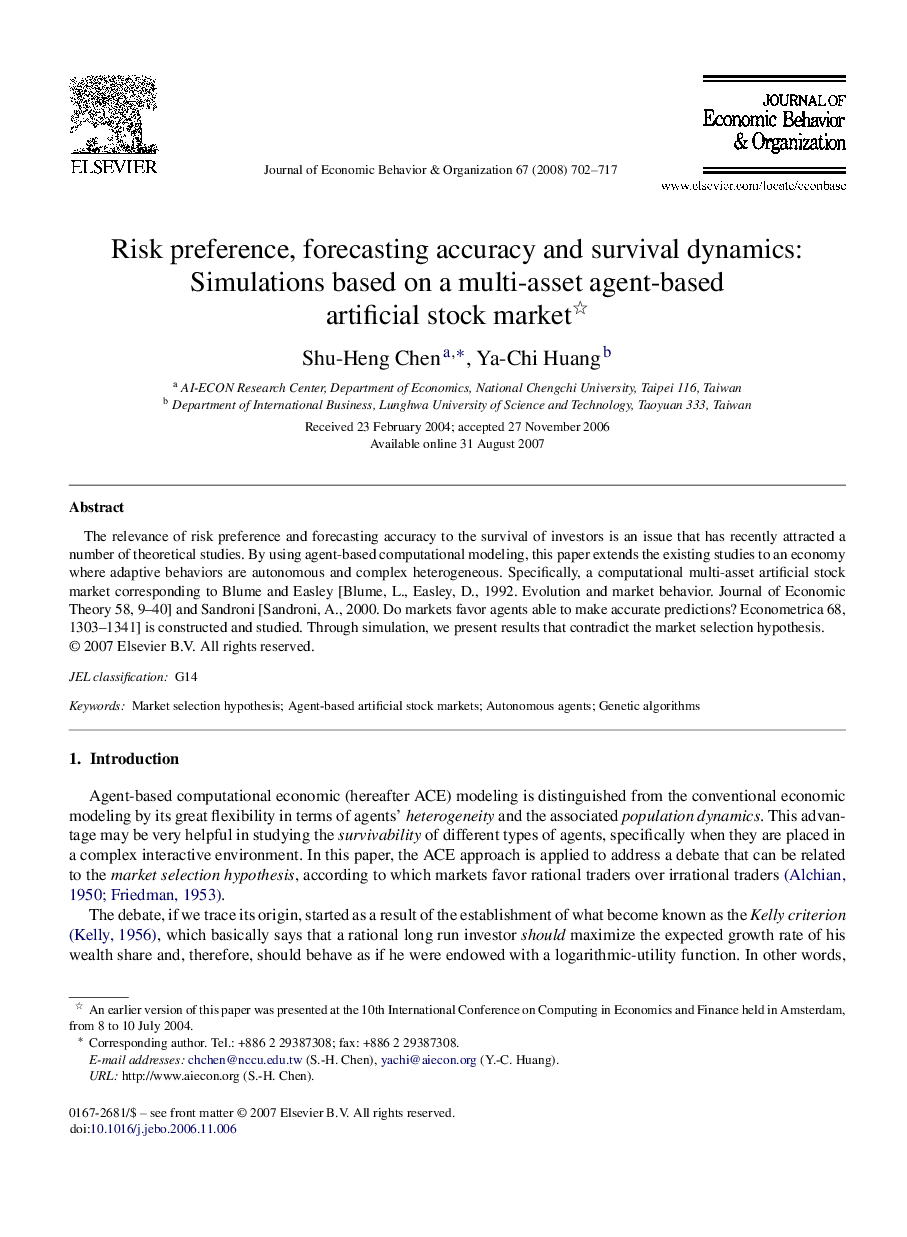| Article ID | Journal | Published Year | Pages | File Type |
|---|---|---|---|---|
| 884636 | Journal of Economic Behavior & Organization | 2008 | 16 Pages |
The relevance of risk preference and forecasting accuracy to the survival of investors is an issue that has recently attracted a number of theoretical studies. By using agent-based computational modeling, this paper extends the existing studies to an economy where adaptive behaviors are autonomous and complex heterogeneous. Specifically, a computational multi-asset artificial stock market corresponding to Blume and Easley [Blume, L., Easley, D., 1992. Evolution and market behavior. Journal of Economic Theory 58, 9–40] and Sandroni [Sandroni, A., 2000. Do markets favor agents able to make accurate predictions? Econometrica 68, 1303–1341] is constructed and studied. Through simulation, we present results that contradict the market selection hypothesis.
